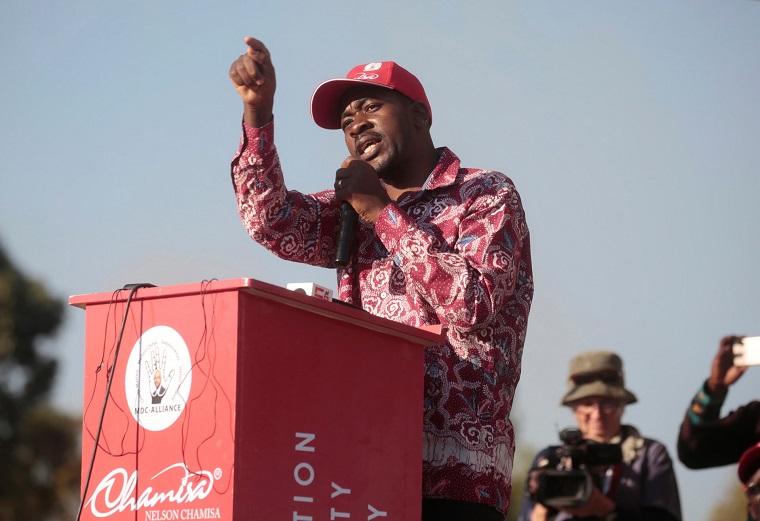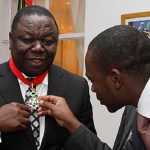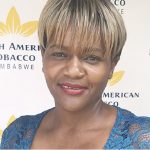The desire for change is understandable. Zimbabwe’s economy is shattered; its infrastructure in deep disrepair. The country has enormous debts, soaring unemployment, massive poverty and no working currency of its own. Most of the population have only ever known ZANU-PF in charge.
But Chamisa has his flaws. If he is a brilliant orator, he can also be a wayward one. A series of spectacular pledges, such as bringing the Olympics and the World Cup to Zimbabwe, or a 600km bullet train, have prompted derision, while early gaffes prompted outrage. In one interview, Chamisa said he would offer his 18-year-old sister to Mnangagwa in marriage if ZANU-PF won 5% in a free election.
“He made mistakes early on but has a brilliant ability to connect with voters. I’ll admit I was sceptical at first but he has really learned and grown,” said one MDC stalwart.
Chamisa’s own self-belief has never been in doubt. The Guardian spent a day with the candidate as he traversed the scrubby, arid landscape of Mashonaland East, a predominantly rural province that was a bastion of support for Mugabe.
At Mahusekwa, 125km from Harare, Chamisa spent an hour sitting under a tree listening to village elders’ complaints before speaking to a rally before a small crowd.
Driving back to Harare, Chamisa, a qualified pastor, described the forthcoming battle in biblical terms: “This is a David against Goliath. David was just a shepherd boy. I am not afraid of the giant. If the elections are free and fair, then victory is certain.”
This “if” is a key question. Previous polls in Zimbabwe have been marked by systematic violence and fraud. Piniel Denga, the provincial chairperson in Mashonaland East, said in 2008 MDC election rallies were broken up by thugs and activists beaten, abducted or killed.
“It was only because of violence that ZANU were ruling,” Denga, who was tortured and imprisoned for seven months in 2007, said.
This time even hardened MDC activists talk of the “strangely peaceful atmosphere”. More than 600 foreign and 5 541 local observers have been accredited, and visas given to international media.
The MDC and human rights activists complain there is still widespread intimidation of voters in rural areas. One recent survey cited more than 150 incidents of threats countrywide between 15 and 22 July.
Other complaints include government handouts being manipulated to skew the vote, a biased official media and a partial election commission. There are also fears of post-poll rigging, too, if the results are close, and that Zimbabwe’s powerful military would not permit an MDC administration to take power.
“If they try to cheat there will be chaos,” Chamisa has told reporters.
Zimbabwe’s rulers know that a fraudulent poll would block the reintegration of Zimbabwe into the international community and deny them the huge bailout package needed to avoid economic meltdown.
Mnangagwa has repeatedly pledged that the polls will be “free, fair and credible”.
“Our people have now enjoyed fundamental freedoms … you can see it, feel it. We have no appetite at all to go into reverse order,” Sibusiso Busi Moyo, a senior soldier appointed foreign minister after the takeover in November, told the Guardian.
Chamisa has little patience with such claims. “The people are the arbiters. The people are the authority,” he said as the crowd at Chitungwiza finally began to disperse. “They want a new beginning and that is what we will give them.”
By Jason Burke – The Guardian
(466 VIEWS)


